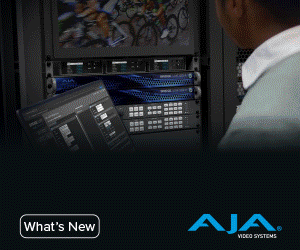Transitioning to "the Cloud" & Minnetonka's Approach to Cloud Computing

By: Jayson Tomlin, VP Marketing, Minnetonka
The transition to “the cloud” in our industry has been challenging. In order to understand how we address cloud computing, we must follow the history of how we got here.
Minnetonka Audio provides quality-first audio processing, resulting in a number of disruptive innovations in our field.
20 years ago, we provided audio processing for the new platform of the time: the digital audio workstation (DAW). We provided plug-ins that the professional audio engineer could integrate into their DAWs to process files as needed. This could include encoding to the codec of the day, such as using our SurCode for Dolby Pro Logic ® II, or providing authoring tools for optical disc delivery. This is what we would call “on-premise” processing, or processing on individual client workstations in editorial rooms. Each on-premise system required a local engineering staff for maintenance, as well as continual upgrades in hardware.
With each new technology advancement, a new hardware and workstation purchase were necessary.
10 years ago, our products transitioned to automated enterprise-level platforms, as well as creating new processing technologies to meet market demand. This took audio processing out of individual edit suites and put it into a facility-wide workflow management system. By focusing on the enterprise, overall hardware and maintenance costs could be reduced, as well as labor savings on the tasks that do not require operator attention. Minnetonka’s AudioTools Server platform provides a wide variety of needed processes, such as mandatory loudness control, for example. Our server-based system is now in a single “machine room” environment connected to shared storage on-premise, but would require substantially less engineering and maintenance effort than the previous model of individual DAWs. Additionally, a server-based system can provide the flexibility to load balance between multiple systems, offering scalability to handle peak demand, as well as integration into a facility-wide video-centric workflow management system, such as Telestream’s Vantage ® , Harmonic’s ProMedia ® Carbon and WFS ™ , and Avid’s Interplay ® | MAM, and more.
Today, we transition and evolve again to “off-premise” computing to meet the needs for greater scalability and fast turnaround of media processing. AudioTools CLOUD takes our automated processing platform and brings it to the scalable on-demand computing resources of Amazon’s EC2 processing and S3 object storage platform to provide media processing facilities with tremendous flexibility.
We have three models for off-premise (cloud) processing. AudioTools CLOUD On-Demand is an online web-service that offers the processing that you want, when you need it, and you pay only for what you use. With On-Demand, the workflow control, processing modules and reporting all happen within the Amazon EC2 Instance, as well as the S3 Cloud Disk, requiring no on-premise hardware costs or ongoing maintenance. Expansion to handle peak processing requirements is possible by configuring additional EC2 instances, which can then be taken offline when not required, saving money during downtime.
AudioTools Server facilities can take the licenses that they own on their LicenseServer system, and apply those licenses to either their on-premise processing plant or to a cloud-based third-party engine, such as Telestream’s Vantage Cloud platform.
Telestream’s Vantage Cloud platform natively supports third party connectors, including the Vantage AudioTools Connector for integration with AudioTools Server and AudioTools CLOUD. Custom-defined workflows, profiles and licenses can be shared in this hybrid on-premise and cloud architecture, giving maximum flexibility and scalability.
AudioTools CLOUD can interoperate directly with Telestream Vantage Cloud in two unique ways.
AudioTools CLOUD BYOL - Bring Your Own License
AudioTools Server users can benefit from a cloud-based deployment by adding the AudioTools CLOUD BYOL License Server module. The BYOL License Server is a local dongle server that allows deployment of an AudioTools Server in any public or private cloud-based environment. The AudioTools Server system in the cloud will contact the local License Server for available licenses, benefiting from cloud-based flexible scalability within the existing license pool. AudioTools CLOUD BYOL is perfect for users that want the flexible scalability of cloud-based processing, combined with defined processing profiles and licenses.
AudioTools CLOUD NODE
AudioTools Server v4 will offer an on-demand Amazon Cloud-based AudioTools Server instance to their local AudioTools Server. AudioTools CLOUD NODE allows Amazon EC2 instances to be added as another node in the client processing farm, seamlessly moving jobs and workflows between on-premise capacity and off-premise Amazon resources. Facilities can meet the demands of peak processing with minimal additional cost, as the hardware, storage and processing are maintained by Amazon and spun down when peak requirements subside. In addition to load balancing the work between on-premise and off-premise installations, cloud instances can serve as Failover and Spillover nodes, thereby insuring uninterrupted processing, even if there is a failure within the on-premise system. If a local system is not licensed for a specific ATS module, Workflow Control can assign those tasks to the Cloud Node, which by default includes all possible modules and licenses for AudioTools Server. AudioTools Server CLOUD Node is the perfect add-on for flexible scalability and additional licenses on a project-by- project basis.
Though the transition to cloud processing has taken 20 years, AudioTools CLOUD gives our clients low-cost scalability, as well as maximum flexibility and security, and takes our best-in- class platform into the new era of distributed processing.





